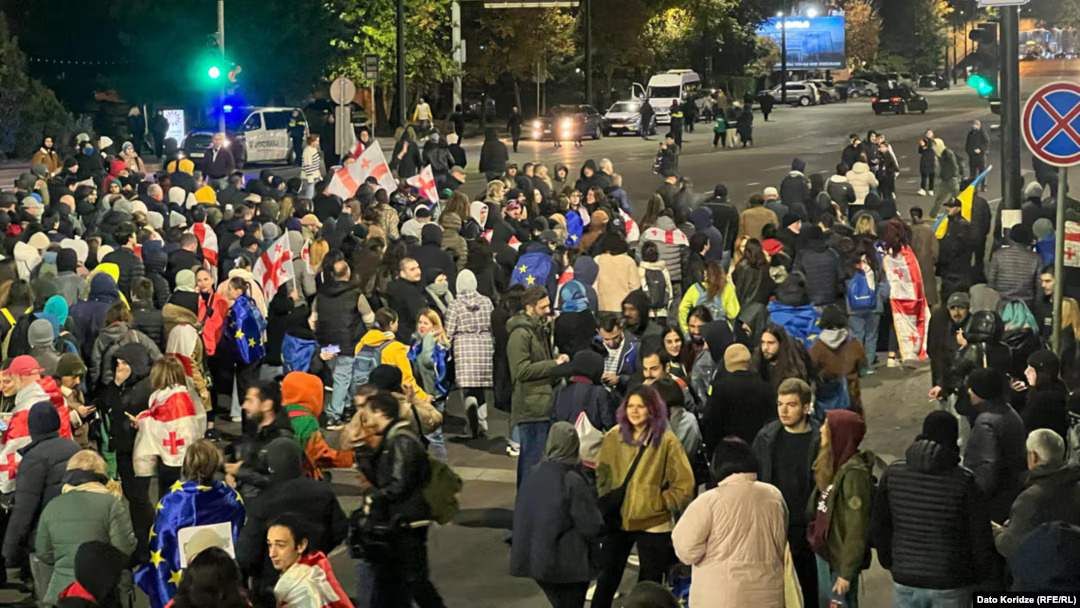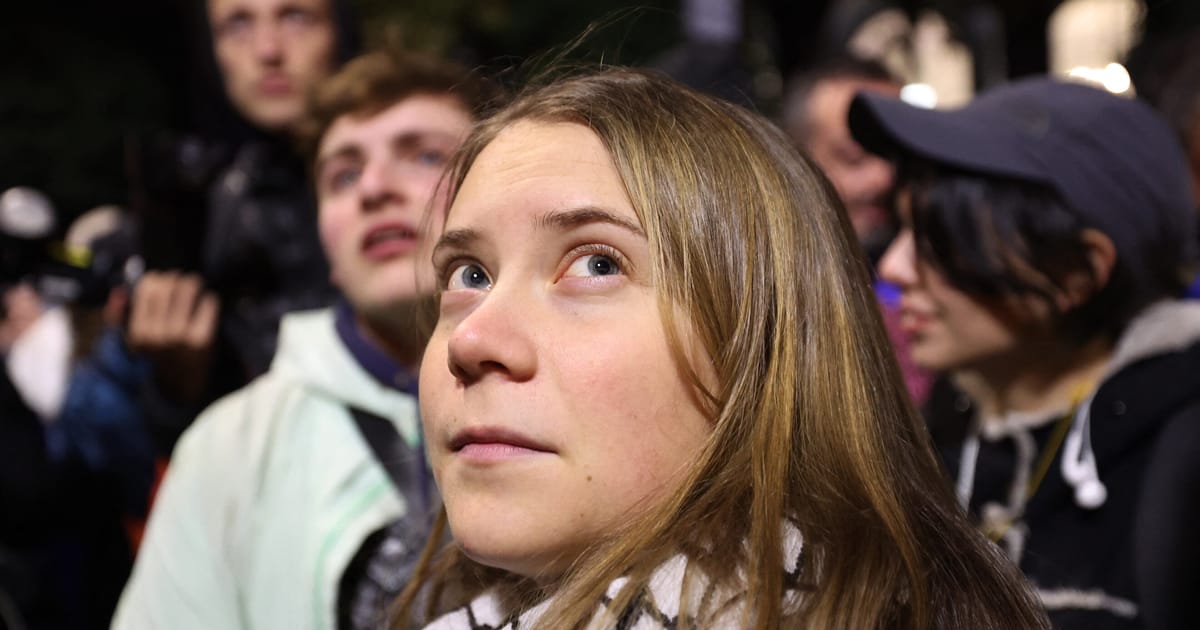On Monday, Swedish climate activist Greta Thunberg took part in a political demonstration in Tbilisi, Georgia, expressing her support for local activists and citizens defending their fundamental rights, such as freedom, justice, and democracy.
Thunberg’s involvement comes after the parliamentary elections held on October 26, in which the pro-Moscow Georgian Dream party retained power amid allegations of vote-buying, intimidation, and fraud. Opposition leaders, along with President Salome Zourabichvili, have denounced the election results and vowed to challenge their legitimacy.
Thunberg characterized the current political climate in Georgia as “an outrageous development” and an example of authoritarianism. She praised the bravery of those who continue to protest despite facing governmental oppression. Her remarks highlight the significance of public demonstrations in advocating for democratic principles and resisting oppressive regimes. Thunberg’s presence at the rally serves as a reminder of the global struggle for democracy and human rights.
During the demonstration, Thunberg wore a keffiyah, symbolizing her solidarity with Palestinians suffering under Israeli occupation. This gesture is part of a broader trend in her activism, which has expanded beyond climate change to include various human rights issues.

Greta Thunberg Joins Georgian Protesters to Support Democracy and Human Rights Amidst Controversial Election Results
Earlier this year, Thunberg was arrested during pro-Palestine protests, showcasing her commitment to standing up for marginalized communities around the world. Her actions in Georgia reflect a growing awareness of the interconnectedness of various social justice movements.
The protest was organized by opposition leaders in response to the contentious election results, marking the second major demonstration since the vote. These leaders are calling for new elections, insisting that the current parliament lacks legitimacy.
Giorgi Vashadze, a member of the opposition United National Movement, emphasized the need for continued resistance and reiterated their stance against recognizing what they term “stolen elections.” This declaration indicates a determination among the opposition to escalate protests and advocate for significant political reforms in Georgia.
Thunberg’s participation in the Tbilisi demonstration underscores the importance of international solidarity in the fight for democracy and human rights. By standing alongside Georgian activists, she amplifies their voices and highlights the universal nature of their struggle. Her involvement serves to connect various global movements, reinforcing the idea that the fight for fundamental rights is a collective responsibility that transcends borders and requires unified action from individuals around the world.











































